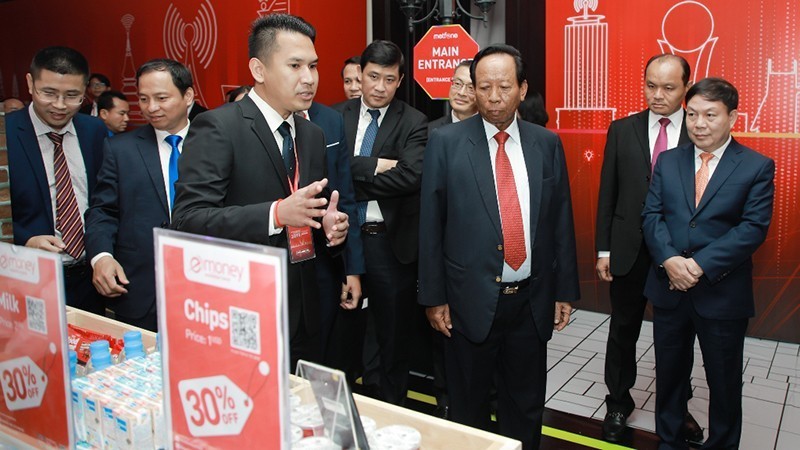 |
| In Cambodia, Viettel's Metfone is a pioneer in creating a digital society. (Photo: VNA) |
Many investment projects have yielded profits, sending about 2 billion USD back home. One such project is PetroVietnam’s oil exploration project in Russia, which produced a profit of 855 million USD, more than double its total investment capital.
Vietnamese enterprises have invested 22.1 billion USD in 1,660 foreign projects in 79 countries and territories, mainly in such fields as telecommunications, mining, agriculture, forestry and fishery. Laos, Cambodia and Myanmar are the largest recipients, accounting for nearly 40% of Vietnamese enterprises’ total overseas investment.
According to an assessment by the WTO Centre at the Vietnam Chamber of Commerce and Industry, Vietnamese enterprises’ increase in overseas investment has helped with Vietnam’s economic growth and international economic integration.
It also affirms the entrepreneurship, management capacity, vision and strategy of Vietnamese enterprises in overseas projects. The recent growth of overseas investment has been attributed to the standardisation of investment procedures and the fine-tuning of legal frameworks.
However, Vietnamese enterprises’ overseas investment activities are still facing many risks, especially in legal issues which result in unexpected disputes. Other problems include prolonged time for securing investment permits and the gap in the skills of local workers.
In addition, there is a lack of cooperation and mutual support between Vietnamese enterprises doing business in the same geographical area.
Therefore, to enhance efficiency and reduce the risks of overseas investment activities, Vietnamese enterprises need to be well-prepared for legal matters. They also need to proactively prevent disputes and strengthen information sharing.
It is also necessary to accelerate the process of licensing overseas investment projects, cut down on administrative procedures and enhance the role of Vietnamese ambassadors and commercial counsellors abroad as the bridge between Vietnamese enterprises and foreign countries.
In addition, the Government needs to introduce more substantive and attractive policies to encourage enterprises to invest abroad, as well as increase scrutiny of capital flows to avoid negative impacts. It is also necessary to grasp and effectively deal with difficulties, obstacles and risks in foreign investment activities, ensuring that they are in line with the country’s socio-economic development strategy.
















































